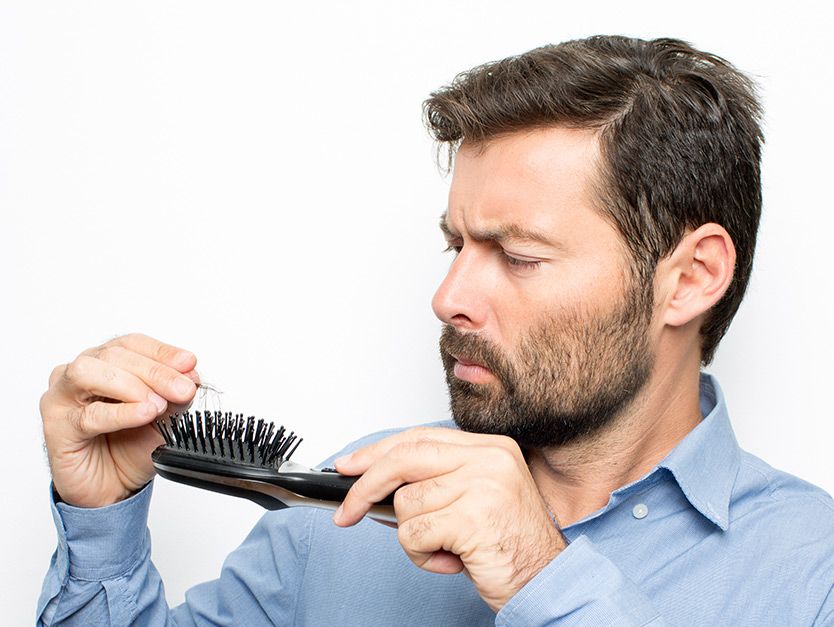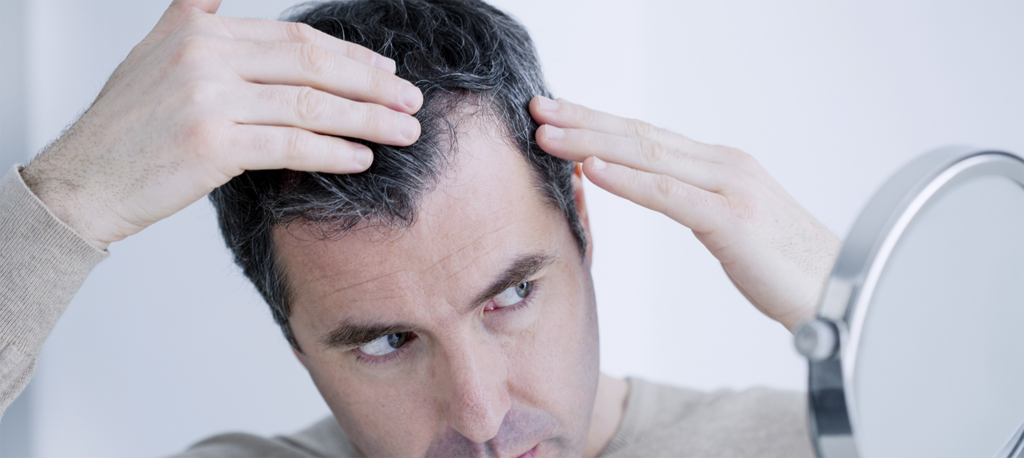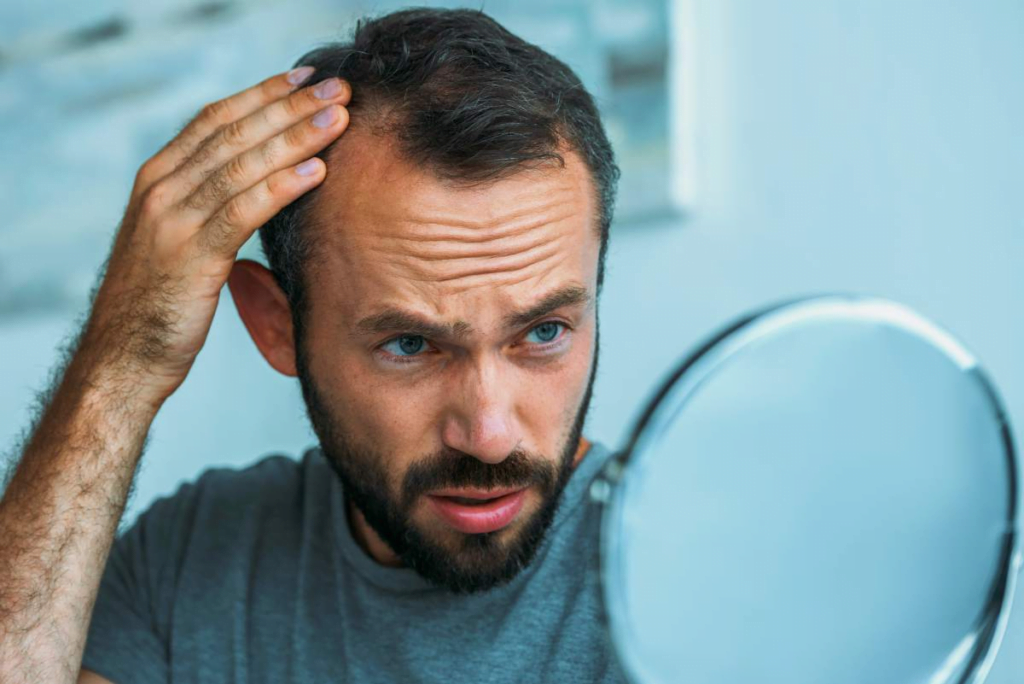
Hair transplant surgery is a transformative procedure that can restore not only a full head of hair but also self-confidence. It’s a solution for individuals experiencing hair loss, whether due to genetics, hormonal changes, or other factors. For many, the promise of regaining their hair is a life-changing opportunity. However, one of the most common concerns is whether hair loss will continue after undergoing the surgery.
At our health center, we provide personalized hair transplant services for individuals of all gender identities and orientations. Whether you are cisgender, transgender, or non-binary, we believe everyone deserves to feel comfortable and confident in their appearance. In this blog, we’ll explore whether hair loss occurs after transplantation and what you can expect during the healing process.
İçindekiler
1. Understanding the “Shock Loss” Phenomenon
Immediately after hair transplant surgery, many patients may experience what is known as “shock loss.” This term refers to the temporary shedding of the transplanted hair follicles. While it may be alarming to see the newly transplanted hairs falling out, this is a normal part of the healing process and should not be mistaken for the failure of the transplant.
During the procedure, hair follicles are carefully harvested from the donor area and transplanted into the thinning or balding areas of the scalp. These follicles undergo a temporary phase of shedding due to the stress of the transplantation. The shock loss typically occurs within two to four weeks after the surgery, and it’s important to remember that it is temporary. The hair follicles remain healthy and intact beneath the skin, and new hair will begin to grow from them within three to four months.
2. The Hair Growth Cycle
It’s important to understand the hair growth process after a recent hair transplant to better understand why some people may experience hair loss at times. Human hair undergoes three stages of growth:
- The active growth phase, also known as the Anagen Phase, involves continuous hair growth for several years.
- Catagen is the brief period when hair growth stops and transitions to the resting phase.
- In the resting phase of Telogen, hair is shed to create more space for growth.
- The telogen phase is where the transplanted follicles may shed temporarily after hair transplant surgery. After completing this phase, the follicles will move on to the anagen phase and begin producing healthy hair.
3. What to Expect During Recovery
Hair transplant surgery is a gradual process, so it’s best to be cautious about how your hair will look right after the procedure. What can you anticipate during the weeks and months after the surgery:
- Initially, there may be some redness, swelling, and mild discomfort in the donor as well as the recipient after surgery. The care of your scalp is up to the surgeon’s standards, which includes being cleaned, applying ointments as directed, and refraining from shaving or chewing on anything.
- The first four weeks may see the shedding of transplanted hair due to shock loss. This is a natural and expected aspect of the process.
- During the third to fourth months, the transplanted follicles are responsible for producing new hair. The new hair will start off light and fluffy, but it’ll gradually become thicker and darker as the days go by.
- The thickness and fullness of your hair should become noticeable in months 6-12. The transplant’s final outcomes will be more evident as the growth of new hair continues..
4. Will Future Hair Loss Occur?
The question of whether hair loss will persist after undergoing hair transplantation is a major concern for many people. This answer hinges upon:
The donor area, which is typically the back and sides of the scalp where hair follicles are transplanted, is genetically resistant to balding. The likelihood of follicles falling out is low after transplanting. Permanent hair will result from the transplanted follicles.
Non-transplanted hair in the recipient area may still be susceptible to hair loss over time if it wasn’t transplanted. This is especially relevant for those who suffer from gradual hair loss, whether male or female. baldness. Consequently, numerous patients may require further surgeries in the future to maintain optimal hair density.
The use of hormone replacement therapy (HRT) can cause hair growth issues in transgender individuals. Transgender males may benefit from testosterone-based hair growth treatments, whereas transgending females experience reduced hair loss through estrogen therapy. The potential impact of hormone therapy on hair transplant outcomes should be discussed with your surgeon before the procedure.
Every patient we treat at our health center is treated with an extended hair restoration plan, which may include future treatments such as additional transplants and medical treatments to maintain and enhance results.
5. Factors That Impact Long-Term Success
Despite the fact that hair transplantation is typically an outgrowth of one’s life, there are certain conditions that may impact its success in the long run. These include:
- The loss of uncut hair may persist in younger patients as they age. Waiting until hair loss has settled can be a wise decision in some cases.
- Your hair’s natural appearance may vary depending on the thickness, color, and curl of your hair. Thicker hair leads to increased coverage and decreased number of grafts in patients.
- The health of your hair is compromised by lifestyle factors like smoking, poor nutrition, and excessive sun exposure, which can hinder hair growth. We encourage all patients to lead a healthy lifestyle, as it will promote long-term healing.
- The success of the surgery can be attributed to following your surgeon’s post-surgical care instructions. It may involve refraining from certain medications, not smoking, and keeping the scalp free of dirt and odor during the healing process.
6. Why should you choose Our Clinic for Your Hair Transplantation?
The hair restoration journey of each patient is distinct at our health center. We are committed to providing hair transplants that suit every individual, regardless of their gender or sexual orientation. Whether you’re looking to smooth out your look, lift up your eyebrows, or embrace your natural features, we have the expertise to help you achieve your goals.
Hair loss is a common concern after hair transplant surgery, but there may be some initial shedding that is part of the healing process. After the normal hair growth cycle is restarted, new hair will grow in place of lost hair, resulting in a fuller and younger look for you. When properly cared for, your hair transplant can provide long-lasting results.


